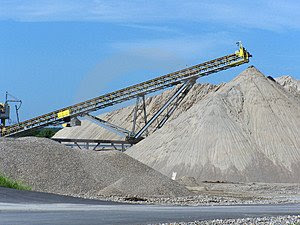 Today in floor debate in the Montana House of Representatives we came to the end of a very long road with the passage of two bills: the House Natural Resources committee bill on gravel, and a bill on public notice of oil and gas leases on state lands.
Today in floor debate in the Montana House of Representatives we came to the end of a very long road with the passage of two bills: the House Natural Resources committee bill on gravel, and a bill on public notice of oil and gas leases on state lands.
I’ve been fighting for better policies and laws on these issues for quite some time now, and the bills that passed are truly compromise bills. They do good things. As one representative said on the floor, they’re not perfect, but there’s more good stuff in them than bad. That’s true.
The gravel bill includes measures that haven’t been done before, like public notice of an opencut mining operation (gravel pit) that includes mailed letters to neighbors within a half mile of a proposed operation, notice in the local newspaper, and posted notices on the site. The notice will include a description of the site, the estimated volume of gravel or sand to be extracted, facilities on the site (like gravel crushers, which require air quality permits, or concrete mixing or asphalt batch plants), the duration of mining and related activities, and access points of the operation. It also includes a provision that if a certain percentage of those notified request a public meeting, the department will hold a meeting.
The bill includes many new victories for the gravel industry. Current law assesses a resource indemnity tax that industry did not support, so the bill removes that tax and assesses a per-cubic-yard fee instead. The money will support 3 or 4 new people in the Opencut Mining Division, the agency tasked with reviewing applications, issuing permits, inspecting sites, and tracking reclamation efforts. In recent years, delays in permitting have driven industry to court, and last summer, judges ordered permits to be issued because timelines for review had been exceeded. The permits were issued without any environmental review, a requirement of opencut application review and a constitutional right protected by the Montana Constitution, and so the judges rescinded their decisions.
House Bill 678 also favors industry for changes that shorten timelines for consideration of applications. The bill also does NOT allow for the department to deny applications. Current processes allow a 30-day review and a 30-day period for acceptance (with approved plans of operation); each of those periods may be extended another 30 days, so the maximum time now for consideration is 120 days. The new timeline provides for a 5-day review to find the application complete, then 45 days to find it acceptable, hold public meetings (if thresholds are met), accept public comment, and address plans of operation. That’s 50 days versus the current allowance of 120.
There is concern that an understaffed and underfunded department cannot meet the new timelines, but with the revised fee structure for funding the department, new requirements for applicants to meet, and advances in public notice, I’m hopeful if not confident that the new system will be far better than the current broken system. If anything has become evident during these few years of big operations, delayed permits, court cases, and rescinded decisions, it’s that the current system is terribly broken.
Parts of the bill were amended to remove good public participation measures, including fixes for concerns of neighbors about operations that include asphalt batch plants and concrete mixing, and the discretion of the Opencut Mining Division to hold public meetings or to send some applications to extended review. I opposed those amendments, but for the sake of passing a bill with more advances than setbacks, the House passed the bill.
A public notice bill for oil and gas leases on state lands passed the House today, and it’s a close cousin–exactly the same in some sections–to a bill I introduced early this session that requires notice in local newspapers (not just in one newspaper in the state for all state leases) of oil and gas leases, notice to surface landowners, and maps and meaningful data on the state agency’s website. It accomplishes a lot, but the bill I proposed also included provisions for public meetings, notice to adjacent landowners, and authority for the department to pay for the public notice from the state lands administration account.
I’ll keep working on these issues, and I and many others will be watchful of the progress of the state agencies and departments, the responsiveness and responsibility of operators, and the impact on livability of neighboring uses to gravel operations and oil and gas drilling. But for now, these are the vehicles that managed to survive the ugly and wrenching process of lawmaking. I’m proud we have bills that gain some ground for everyone: the public, the state agency, and the gravel mining and oil and gas drilling industries.